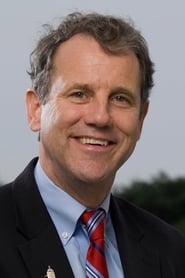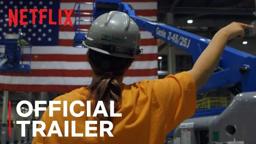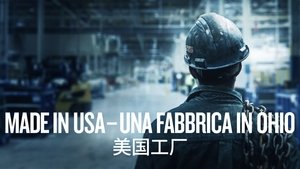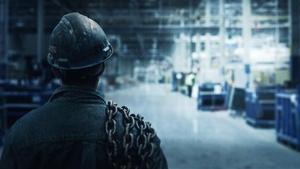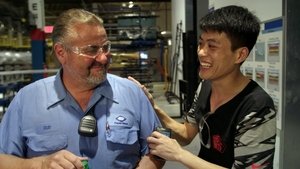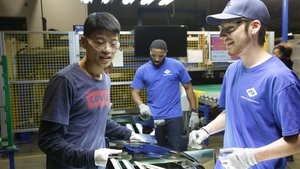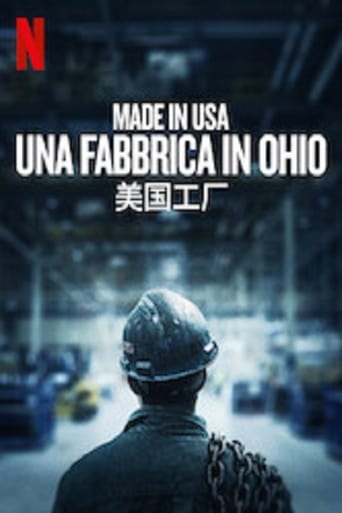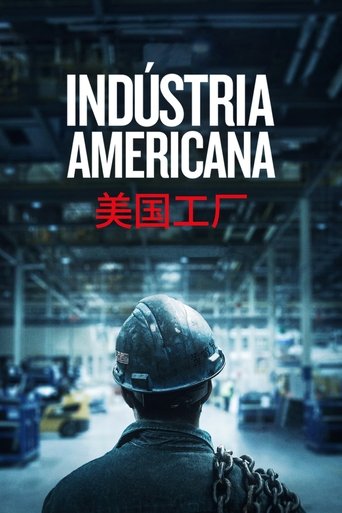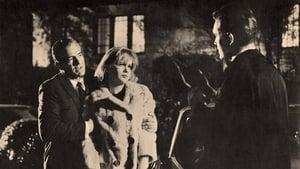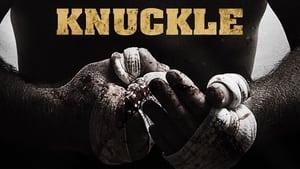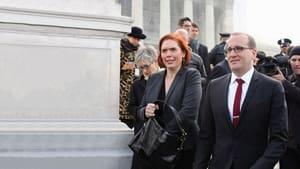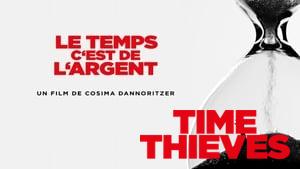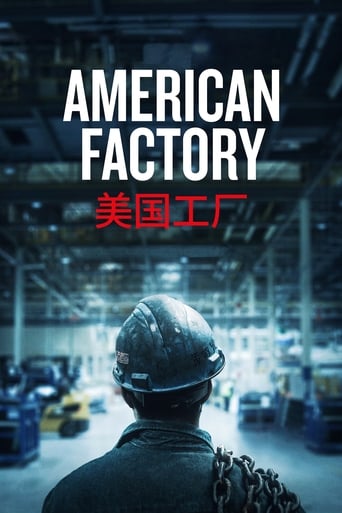
American Factory
Cultures collide. Hope survives.
2019 | 110m | English
Popularity: 0.9 (history)
| Director: | Steven Bognar, Julia Reichert |
|---|---|
| Writer: | |
| Staring: |
| In post-industrial Ohio, a Chinese billionaire opens a new factory in the husk of an abandoned General Motors plant, hiring two thousand blue-collar Americans. Early days of hope and optimism give way to setbacks as high-tech China clashes with working-class America. | |
| Release Date: | Aug 21, 2019 |
|---|---|
| Director: | Steven Bognar, Julia Reichert |
| Writer: | |
| Genres: | Documentary |
| Keywords | factory worker, culture clash, ohio, chinese, american, blue collar worker, manufacturing plant, labor rights |
| Production Companies | Participant, Field of Vision, Higher Ground |
| Box Office |
Revenue: $0
Budget: $0 |
| Updates |
Updated: Feb 04, 2026 Entered: Apr 13, 2024 |
| Name | Character |
|---|---|
| Junming 'Jimmy' Wang | Self - Vice President, Fuyao |
| Sherrod Brown | Self - U.S. Senator, Ohio |
| Dave Burrows | Self - Vice President, Fuyao Glass America |
| John Gauthier | Self - President, Fuyao Glass America |
| Rob Haerr | Self - Furnace Supervisor |
| Cynthia Harper | Self - Lamination Specialist |
| Wong He | Self - Furance Engineer |
| Jill Lamantia | Self - Forklift Operator |
| Jeff Daochuan Liu | Self - President, Fuyao Glass America |
| Shawnea Rosser | Self - Glass Inspector |
| Rebecca Ruan-O'Shaughnessy | Self - Fuyao Attorney |
| Name | Job |
|---|---|
| Chad Cannon | Original Music Composer |
| Lindsay Utz | Editor |
| Lawrence Everson | Sound Designer |
| Steven Bognar | Director of Photography, Director |
| Julia Reichert | Director of Photography, Director |
| Aubrey Keith | Director of Photography |
| Jeff Reichert | Director of Photography |
| Erick Stoll | Director of Photography |
| Name | Title |
|---|---|
| Diane Weyermann | Executive Producer |
| Jeff Reichert | Producer |
| Jeff Skoll | Executive Producer |
| Steven Bognar | Producer |
| Julie Parker Benello | Producer |
| Julia Reichert | Producer |
| Organization | Category | Person |
|---|
Popularity History
| Year | Month | Avg | Max | Min |
|---|---|---|---|---|
| 2024 | 4 | 20 | 25 | 10 |
| 2024 | 5 | 18 | 34 | 10 |
| 2024 | 6 | 13 | 20 | 9 |
| 2024 | 7 | 16 | 23 | 10 |
| 2024 | 8 | 12 | 20 | 7 |
| 2024 | 9 | 9 | 14 | 6 |
| 2024 | 10 | 13 | 21 | 8 |
| 2024 | 11 | 12 | 27 | 8 |
| 2024 | 12 | 10 | 16 | 7 |
| 2025 | 1 | 11 | 17 | 6 |
| 2025 | 2 | 8 | 15 | 3 |
| 2025 | 3 | 4 | 10 | 1 |
| 2025 | 4 | 2 | 4 | 1 |
| 2025 | 5 | 2 | 5 | 1 |
| 2025 | 6 | 1 | 3 | 1 |
| 2025 | 7 | 1 | 1 | 0 |
| 2025 | 8 | 1 | 1 | 0 |
| 2025 | 9 | 1 | 2 | 0 |
| 2025 | 10 | 2 | 2 | 1 |
| 2025 | 11 | 2 | 4 | 1 |
| 2025 | 12 | 4 | 6 | 1 |
| 2026 | 1 | 1 | 2 | 0 |
| 2026 | 2 | 1 | 2 | 0 |
Trending Position
You always read about "cultural differences" as being something that must be overcome when dealing with international projects, but that language always felt so abstract to me; if anything, it seemed like more of an excuse as to why things might be delayed rather than a real problem. This doc did a ... great job of telling the story of what that concept really means in practice. _American Factory_ shows you how much friction is created due to the incongruity in cultural ideas about work ethic, personal freedoms, power, and process. I think that was the highlight of the story for me. For me as an American, there were also feelings of frustration about having a country that doesn't have an answer for these people; their life goes from making $29 working for a US company, to making $12 for a Chinese company. The anti-labor-organizing that we see from Fuyao in the film isn't even unique to this being a China-based company; our home-grown Amazon does a pretty good job of hiring "labor relations" firms to weed out union organizing. I find myself agreeing with one of the speakers at a UAW event captured in the film: we've allowed our country to become one where the rich can exploit the poor, and it would be pretty cool to take it back.
